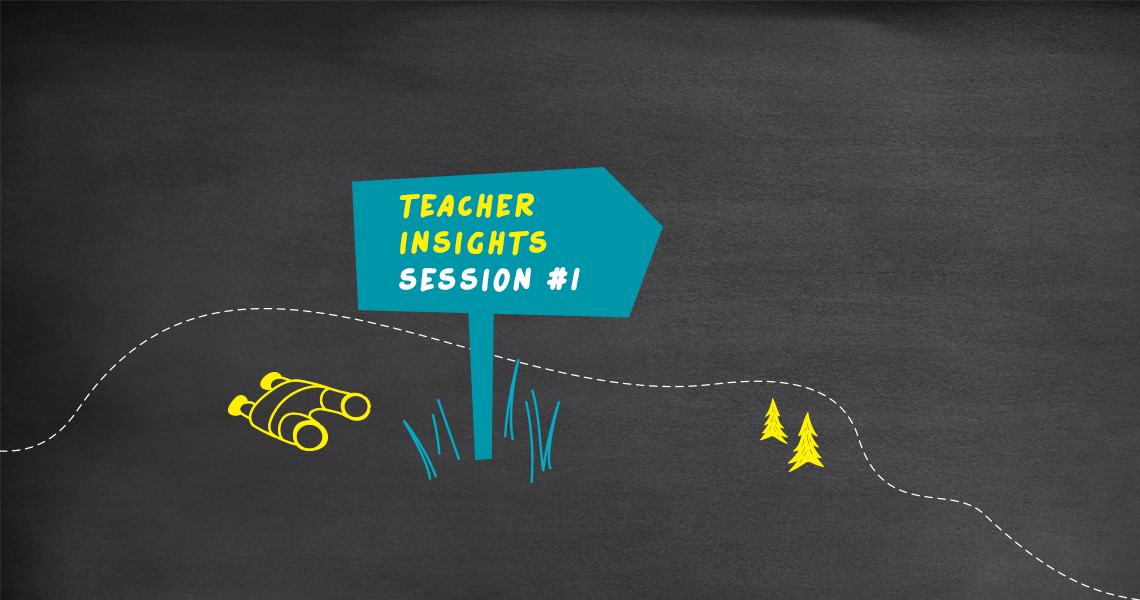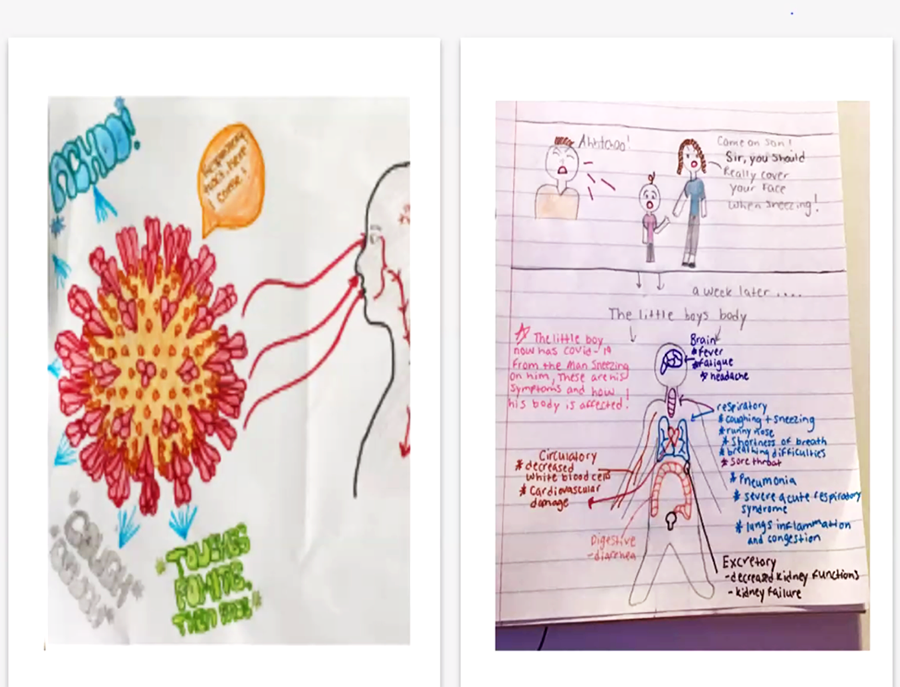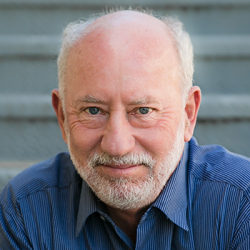
What can we learn from teachers who are facilitating PBL online right now?
That was the driving question for this week’s PBLWorks webinar, which was answered by giving participants a close look at two projects, explained by the teachers who designed and managed them.
Our webinar team is working so hard and doing so well that once again I have to give them props by sharing some of the comments we received from attendees:
“This webinar made PBL seem doable for our students.”
“Great sharing of resources and applications from teachers in the trenches with us!”
“Inspiring, real world application of projects!”
"I like that you all are upbeat, inviting. This was not the usual webinar in a time where so much focus is on the problem, but not necessarily how to solve it. Here they were tangible and practical. The timing is good, 1.5 hours."
“You are all delightful!”
The first project shared was the “COVID-19 Project” for students in high school health science.
Teacher Aide Gonzalez, from Clark High School, Northside ISD,
San Antonio, Texas, designed this project in March as a rapid response to the pandemic. To say students were motivated by the relevance to their lives is an understatement!
Take a look at some of the urgent “need to know” questions students posed at the start of the project:
- What can we learn from this as a society?
- Could we prevent future pandemics?
- Will there be changes after this pandemic?
- How can we educate the community about the prevention of epidemics and pandemics, healthy practices, respecting our environment, etc.?
- How can we attain the necessary survival needs like food and water? How about the economy?
- How is this affecting my work, employment, and other responsibilities?
- How does this pandemic affect the entire world?
- How can we manage these pandemics globally?
- What are some of the experiences we shared globally?
The students were given the open-ended task to “create a multimedia presentation depicting your experiences, ideas, thoughts and perceptions of your experience through the COVID 19 pandemic of 2020.” They could choose to share their work using YouTube, Google sites, PowerPoint, Prezi, PenPal, create a Vlog or use a multimedia platform of their preference, with teacher approval.
Students also worked in teams to select one area to focus on—education, government, healthcare, society, global issues, or family—then identify a problem and propose and present a solution to the class.

The second project was “Happy Plants,” for 4th and 5th grade students who are newcomers to the US.
This one was designed by Liz Leone, ESL Teacher, Webster Elementary School, Manchester School District, New Hampshire. Most of her students are just beginning to learn English.
The goal of the project was for students to grow a plant in a pot, learning some of the science behind what’s needed for healthy plants. Liz launched the project with a “virtual field trip” – a video she recorded of herself visiting a farmer. Each student gathered the materials they would need, and Liz addressed equity issues by making deliveries to students homes (left by the door, to keep at a safe distance!) for those who needed a pot, seeds, soil or whatever.
Students planted their seeds, or what they thought might grow—Liz left this open to student choice, and some learned by not planting the right thing at first, for example a cilantro leaf—and tracked their progress. They compared notes on soil, light, water, and rate of growth. The class used various tech tools, again allowing for inequities in access to the internet and computers by using texting and email. Liz mentioned Google Suites, Prezi, Newsela, Mystery Science, YouTube, and more.
I loved hearing Liz’s “5 Insights about Facilitating PBL Online”:
- Put learning back into student’s hands.
- Pivot your mindset to the real successes.
- Never forget the importance of the success skills.
- Scaffolds and differentiation for ELLs are readily available based on domain proficiencies.
- Applications are awesome, but autonomy is everything.
There were lots more details shared in these presentations, so check out the recording of the webinar.
We’ve lined up more excellent webinars for May, featuring teachers from across the US sharing their projects.
Register soon for the next webinar (which will include some moving examples of student work created in response to the pandemic) on Wednesday May 13 from 12:00-1:30 Pacific Time.
Stay safe and carry on!

